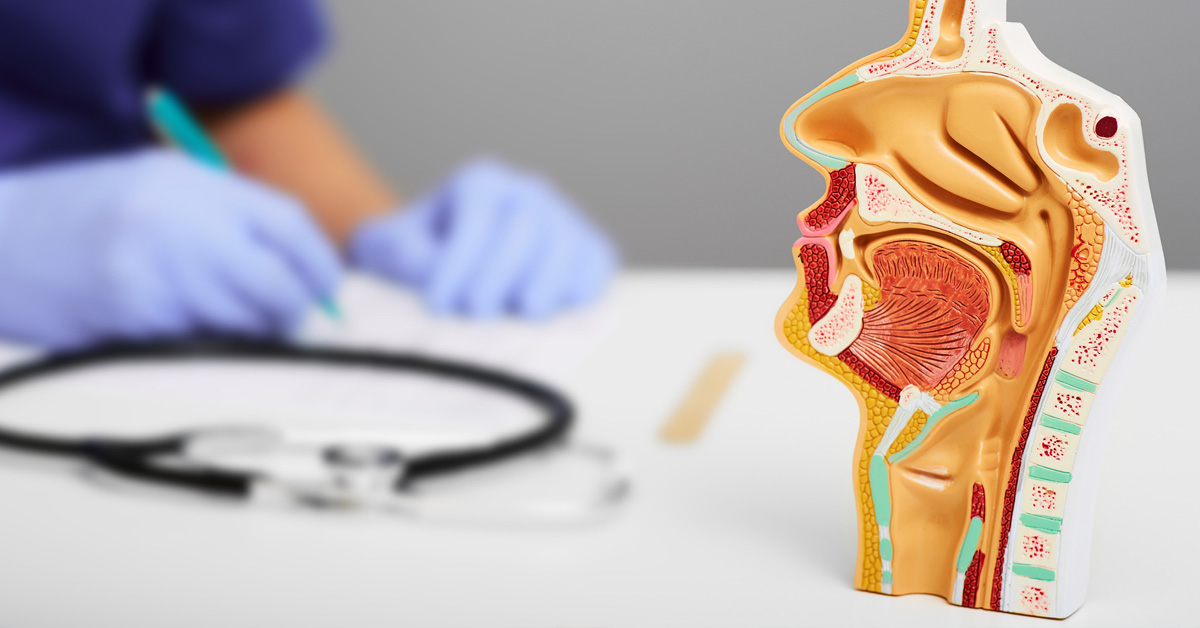Exploring the Area of Otolaryngology: What to Expect When You Seek Advice From an ENT
Otolaryngology, typically referred to as ENT, encompasses the diagnosis and therapy of ear, nose, and throat problems. For those experiencing relevant problems, seeking advice from an ENT professional can provide clarity and relief. Recognizing what to anticipate throughout such appointments is important for reliable communication and care. This summary will describe essential elements of the ENT experience, including typical reasons for check outs and the procedures associated with diagnosis and therapy.

Recognizing Otolaryngology: An Overview
Otolaryngology, commonly described as ENT (Nose, throat, and ear) medication, is a specific branch of medicine that concentrates on the medical diagnosis and treatment of problems impacting these crucial areas of the body. This field includes a wide variety of problems, including those associated to hearing, balance, breathing feature, and speech. Otolaryngologists are trained to manage both clinical and surgical therapies, making use of advanced techniques and modern technologies. Their expertise extends past traditional disorders, dealing with concerns such as allergies, sinus infections, and hearing loss. Additionally, they play an essential role in the management of head and neck cancers cells, offering comprehensive care tailored to private patient demands. On the whole, otolaryngology stays necessary for maintaining health and quality of life in affected individuals.
Typical Factors to See an ENT Specialist
Lots of people seek the expertise of an ENT specialist for a range of reasons, reflecting the varied nature of problems that influence the ear, throat, and nose. Typical problems include persistent sinus problems, which typically results in relentless nasal congestion and facial pain. Allergic reactions and their connected signs and symptoms, such as sneezing and itching, additionally trigger visits to these specialists (Hearing). Hearing loss, whether gradual or sudden, is another considerable reason for examination. Additionally, individuals might seek examination for throat disorders, including relentless hoarseness or swallowing troubles. Rest apnea, characterized by cut off breathing during rest, is frequently addressed by ENT specialists. Each of these problems highlights the importance of specialized care in taking care of intricate ENT-related health issues
Planning for Your ENT Consultation
When getting ready for an ENT appointment, it is important to gather appropriate details and take into consideration any particular issues. Clients should assemble a comprehensive clinical history, consisting of previous ear, nose, or throat problems, surgical treatments, and present drugs. Recording signs-- such as intensity, period, and regularity-- can offer valuable insights for the ENT specialist. Additionally, individuals ought to prepare a checklist of concerns they want to ask, making certain that all problems are resolved throughout the go to. Bringing along any pertinent clinical documents or test outcomes can further aid the ENT in recognizing the person's condition. Patients need to validate their visit information, including area, day, and time, to lessen any kind of last-minute confusion. Proper prep work can boost the performance of the appointment and result in much better outcomes.
What to Anticipate During the Assessment
As the assessment begins, the patient can expect to participate in a complete conversation with the ENT expert regarding their signs and clinical background. The specialist will certainly ask about the duration, frequency, and seriousness of signs and symptoms such as hearing loss, nasal congestion, or aching throat. Furthermore, the person's previous clinical conditions, drugs, and any type of appropriate family members history will certainly be examined, aiding the specialist in creating a complete understanding of the client's health. The ENT may likewise ask about lifestyle factors, such as exposure to allergens or irritants. This open dialogue establishes a structure for the examination, making sure that the patient's concerns are dealt with and establishing the phase for any kind of needed evaluations or referrals for treatment.
Analysis Examinations and Treatments in Otolaryngology
A series of diagnostic tests and treatments are important in otolaryngology to properly assess and diagnose conditions affecting the ear, nose, and throat. Typical tests include audiometry, which measures hearing feature, and tympanometry, analyzing center ear pressure. Nasal endoscopy enables visualization of the nasal passages and sinuses, while laryngoscopy takes a look at the throat and vocal cables. Imaging methods, such as CT scans and MRIs, provide detailed sights of head and neck frameworks. Allergy screening might additionally be carried out to determine triggers for sinus or respiratory system issues. These analysis tools dmg otolaryngology enable ENT professionals to develop a detailed understanding of people' conditions, making certain customized and efficient monitoring strategies. Appropriate medical diagnosis is crucial for successful treatment results in otolaryngology.
Treatment Alternatives Offered by ENT Specialists
ENT specialists use a range of therapy alternatives customized to address particular problems affecting the throat, nose, and ear. These treatments range from conservative techniques, such as medication and way of life modifications, to even more invasive treatments. Allergic reactions may be managed with antihistamines or immunotherapy, while persistent sinusitis might require nasal corticosteroids or sinus surgical procedure. For hearing loss, ENT professionals typically recommend hearing aids or medical treatments like cochlear implants. In instances of throat disorders, alternatives can include speech therapy or procedures to get rid of blockages. Additionally, they might give support for handling rest apnea, including the usage of CPAP devices or medical interventions. Overall, the objective is to improve people' high quality of life with individualized treatment and efficient therapy strategies.
When to Look For Follow-Up Treatment With an ENT
When to seek follow-up treatment with an ENT specialist is important for handling ongoing signs and symptoms or problems associated to ear, throat, and nose conditions, acknowledging. Individuals need to take into consideration setting up a follow-up appointment if symptoms continue in spite of preliminary treatment, such as persistent ear pain, nasal blockage, or throat pain. Adjustments in hearing, balance concerns, or unusual nasal discharge may also warrant further examination. Additionally, if a client experiences negative effects from recommended medications or has gone through a surgery, follow-up care is very important to check healing and resolve any type of worries. Timely consultations can assure reliable monitoring of problems, avoid potential complications, and offer assurance concerning one's wellness. Seeking follow-up treatment advertises proactive health and wellness administration in otolaryngology.
Frequently Asked Inquiries

What Qualifications Should I Seek in an ENT Professional?
When seeking an ENT specialist, one need to look for board qualification, pertinent experience, and solid individual testimonials. Additionally, reliable communication skills and a thoughtful technique can substantially enhance the overall therapy experience.
Just how Do I Pick the Right ENT for My Demands?
Choosing the right ENT professional includes evaluating their qualifications, experience, and person evaluations (ENT Doctor). It is vital to contemplate their interaction style and method to therapy, ensuring they straighten with the individual's specific health requirements and choices
Are There Any Type Of Risks Linked With ENT Procedures?
The risks linked with ENT treatments might consist of infection, blood loss, anesthesia complications, and possible damage to bordering find more structures. People need to review these risks with their doctor to comprehend private concerns and guarantee informed decisions.
Exactly How Can I Handle Anxiety Before My ENT Visit?
To take care of stress and anxiety before a consultation, people can exercise deep breathing exercises, envision positive results, prepare inquiries ahead of time, and look for assistance from buddies or family members, cultivating a sense of reassurance and calmness.
What Should I Do if I Experience Adverse Effects From Treatment?
If negative effects from treatment happen, the individual should promptly report them to their doctor. Modifications to therapy or additional treatments may be necessary to ensure safety and effectiveness in why not find out more managing their problem - ENT Doctor. As the consultation begins, the client can anticipate to involve in a complete discussion with the ENT specialist about their signs and symptoms and clinical background. These diagnostic devices enable ENT professionals to create an extensive understanding of clients' conditions, guaranteeing tailored and reliable management plans. ENT professionals supply a selection of treatment alternatives tailored to address particular problems affecting the throat, nose, and ear. When seeking an ENT specialist, one need to look for board accreditation, appropriate experience, and solid patient testimonials. Picking the right ENT professional involves reviewing their credentials, experience, and individual reviews